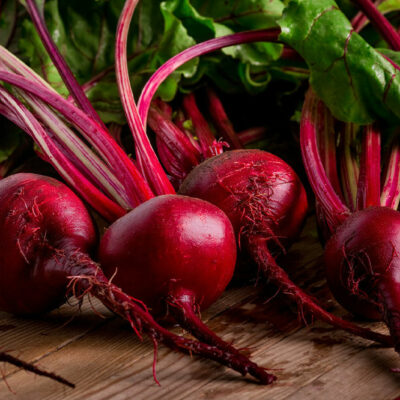5 Common Digestive Issues and Their Symptoms

One of the most vital systems in our body is the digestive system. It is responsible for the digestion of food and the distribution of nutrients throughout the body to meet the bodily requirements for energy, development, and cell repair. Issues in the digestive can interfere with the body’s ability to get energy from food. While some gastrointestinal issues can go away with healthy eating habits, other concerns may require treatment.
Irritable bowel syndrome (IBS)
IBS is a functional bowel disorder. This means the cluster of varied symptoms categorized as IBS is brought on by changes in the normal functioning of the digestive system. The primary sign is abdominal pain, which can develop before or after a bowel movement, and is a reliable indicator of IBS. Additionally, one may experience both constipation and diarrhea. The form of IBS can be determined depending on whether a person has diarrhea or constipation more frequently or both equally. Other IBS signs and symptoms are incomplete bowel motions, white mucus in the stool, and bloating.
Nutrition is important for managing the symptoms of IBS, which includes eating low-fat, high-fiber meals and avoiding common trigger foods when the cause of the condition is unknown. Food poisoning or gastrointestinal infection are common causes. During an infection, the immune system in the gut becomes active and produces cells and proteins that make the gut nerves more sensitive, affecting one’s digestive health. The gut experiences bloating and pain as a result of highly sensitive nerves. A low-FODMAP diet, which calls for avoiding foods high in certain carbohydrates (fermentable oligosaccharides, disaccharides, monosaccharides, and polyols), has been shown to relieve the symptoms of IBS.
Crohn’s disease
Crohn’s disease is an inflammatory bowel disease (IBD). The portions of the GI tract that are most usually impacted by Crohn’s disease are the terminal ileum and cecum. Chronic diarrhea, stomach pain, bloody stools, and exhaustion can be clear symptoms of Crohn’s disease. An immunological response to certain microorganisms in the digestive tract may be the cause of this condition. However, environmental and genetic factors may also play a role. A newly approved treatment technique has shown to be a reliable method to lessen inflammation. A patient might need surgery if the usual treatment options prove to be ineffective. Additionally, people with Crohn’s disease may require routine colorectal cancer screenings.
Gallstones
Bile is an essential digestive fluid in the gallbladder. However, small fluid deposits called cholelithiasis solidify and develop into stones in the gallbladder. These deposits can vary in size, from sand grains to a golf ball, and some people may have many gallstones at once. Gallstones typically do not cause any symptoms, so one may not be aware of having them. However, if gallstones develop in front of the gallbladder opening, people may experience pain. Jaundice and persistent soreness beneath the ribcage on the right side of the body are also possible symptoms. An elevated temperature, nausea, vomiting, and sweating are a few other signs to recognize. A cholecystectomy (or the surgical removal of the gallbladder) and an operation in which an expert removes gallstones from the bile duct are the common treatment options for gallstones.
Gastroesophageal reflux disease (GERD)
When stomach acid backs up into the esophagus, it can cause GERD, a common digestive issue. This disorder, also known as acid regurgitation, can result in heartburn. The acid and bile in these secretions cause irritation and harm the esophageal lining. This damage can elevate, developing into ulcers, scarring, and other problems if left untreated. One of the main symptoms of GERD is heartburn or a burning sensation in the chest that usually develops after eating and may worsen during the night. Other symptoms include a lump in the throat, chest pain, regurgitation of food or sour fluids, difficulty swallowing, nausea or vomiting, and difficulty breathing. Along with prescription treatment, significant lifestyle changes, including being physically fit and stress management, might help lessen esophageal irritation and stomach acid secretion, alleviating the symptoms. However, in some cases, extreme procedures, like acid-blocking treatment options or even surgery, may be required.
Ulcerative colitis
When affected by ulcerative colitis, the large intestine gets irritated and produces ulcers (or open sores). The condition belongs to the group of illnesses known as inflammatory bowel diseases. Here, inflammation typically begins in the rectum, which is next to the anus. One’s entire colon may get affected by the inflammation as it spreads. It is known as ulcerative proctitis when the inflammation affects the rectum and the lower part of the colon. If the entire large intestine is affected by the illness, then the condition is called pancolitis. It is referred to as limited or distal colitis if the colon’s left side is the sole impacted area. As it is a lifelong condition and does not have an infectious origin, ulcerative colitis can be a severe disease. Over time, the symptoms of the condition can worsen. So, one may first experience diarrhea or frequent and urgent bowel motions, abdominal discomfort, fatigue, nausea, and anemia (insufficient red blood cells).
Although there is no known treatment for ulcerative colitis, there are several ways to reduce the inflammation and improve overall health to resume one’s normal activities. Typically, healthcare professionals use prescription options to relieve the symptoms. The goal of treatment here is to improve the quality of life for those with ulcerative colitis while also inducing and maintaining remission. Doctors may also prescribe treatment options to reduce inflammation in the large intestine. Relieving the inflammation and swelling will help the tissue to repair. Additionally, it can relieve other symptoms, such as abdominal discomfort and diarrhea.
If one notices one or more of the above mentioned symptoms, they should immediately consult a healthcare professional. This can help them get a diagnosis and appropriate treatment options for these common digestive conditions.








